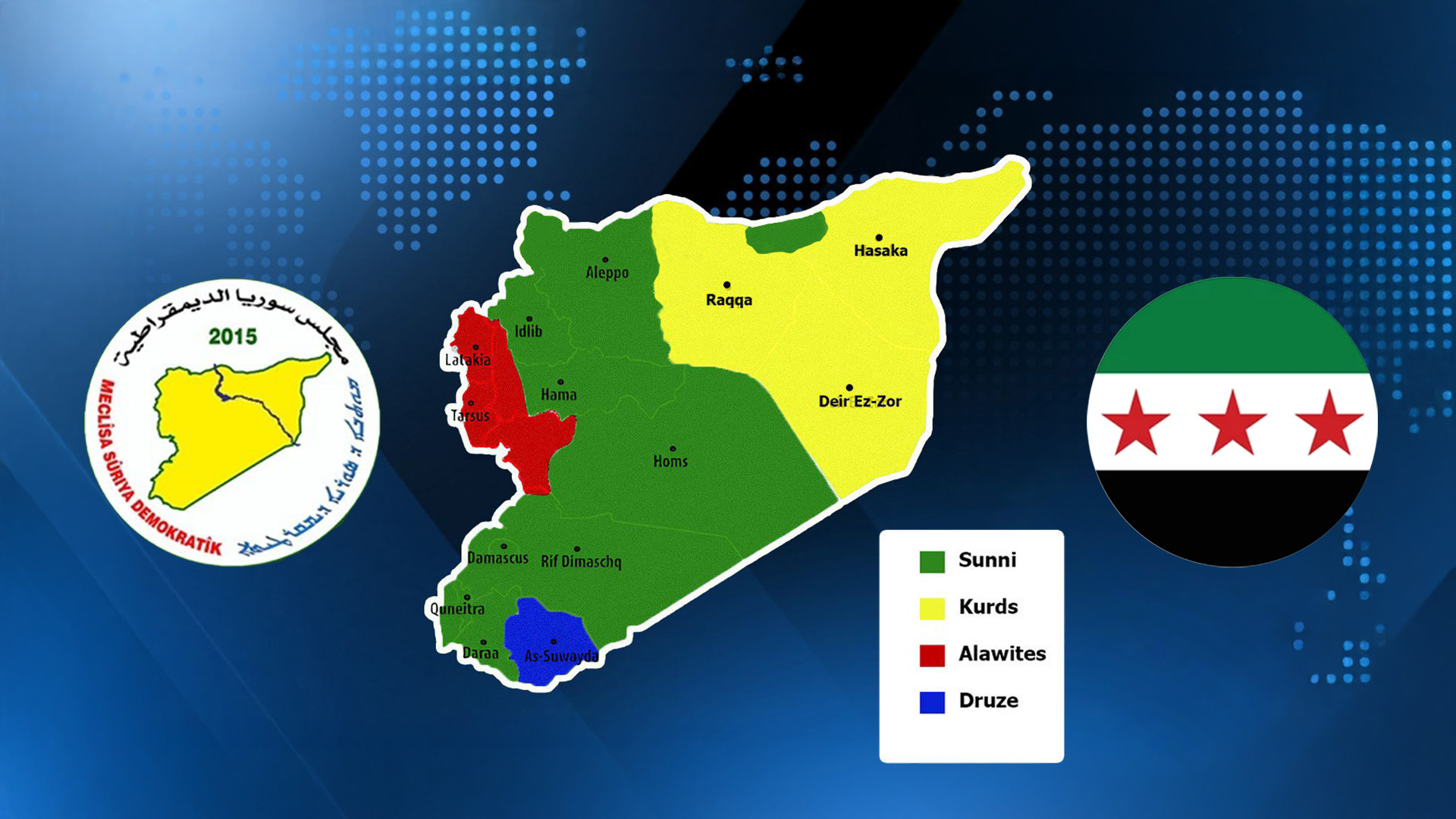SDC: Damascus Does Not Control All of Syria
SDC representative Hoshang Darwish asserts Damascus does not control all of Syria, citing external pressures from Turkey, Russia, and others. He insists any political settlement requires genuine Kurdish participation and defends SDF arms as anti-ISIS tools.

Erbil (Kurdistan24) – In an exclusive interview with Kurdistan24, Hoshang Darwish, the representative of the Syrian Democratic Council (SDC) in the Kurdistan Region, affirmed that the Syrian government does not exercise full authority over the entire Syrian territory, stressing that political, regional, and international pressures continue to shape developments inside the country.
Darwish began by recalling the early stages of Syria’s conflict, explaining that after the initial uprisings and the collapse of central structures, the formation of a transitional government and later a constitutional draft did not include real representation of the Kurds, Druze, or Alawites. He noted that the subsequent establishment of the “Syrian Arab Republic” through constitutional provisions further centralized power in the presidency, placing executive, legislative, judicial, and security institutions under the direct control of the president.
“The government speaks of elections for parliament and other bodies, but in reality these processes are neither free nor reflective of the Syrian mosaic. The so-called state exists on paper, but in practice, its authority does not extend across Syria’s geography,” Darwish emphasized.
Discussing the March 10 agreement between Syrian Democratic forces (SDF) commander General Mazloum Abdi and Syria interim President Ahmed al-Sharaa, Darwish stated that while the deal was meant to create a framework for cooperation, regional actors intervened to undermine it. “External and local powers, including Türkiye, Russia, the United States, and Gulf states such as Saudi Arabia and Qatar, have exerted pressure on Damascus to block real progress. Israel also plays an influential role in southern Syria,” he said.
Darwish argued that the Syrian government remains under significant external constraints, unable to act independently, and therefore not ready to reclaim complete sovereignty over its territory. “From the start, Israel opened Syria’s skies. Türkiye seeks dominance militarily, politically, economically, and even through aerial control. Russia and other actors also impose continuous pressure. The greatest mistake of Damascus has been prioritizing foreign negotiations while neglecting the domestic settlement of Syria’s internal diversity,” he added.
Turning to the Kurdish position, Darwish highlighted the consistent stance of the Syrian Democratic Council and its military wing, the Syrian Democratic Forces (SDF). He explained that the SDC has always insisted on dialogue and inclusivity. “Two key messages from New York reaffirmed this. First, that no group should bear arms outside state legitimacy, and second, that partition of Syria in any form—whether called federalism or confederalism—will not be accepted. These positions are not threats but affirmations of the Kurdish commitment to a united Syria,” he said.
He elaborated on the debate surrounding the SDF’s military arsenal. “The weapons we have are not simply one ‘red line’ but thousands of red lines. These arms are provided through the international coalition against ISIS, primarily NATO and the United States. They are not for separatism, but for defending the region against extremism. Any attempt to depict them otherwise is an external pressure tactic,” Darwish noted.
Darwish underscored what he described as a glaring contradiction in Syrian state policy. “The government continues to target Kurds and obstruct meaningful dialogue with the SDC, yet it has not confronted Israel’s actions in the south. Issues such as the Golan Heights, Daraa, and Quneitra remain unresolved. There have been understandings with Israel, but never officially acknowledged. This reveals the selective application of sovereignty in Syria,” he explained.
He questioned why Damascus has consistently treated the Kurdish movement as a threat while showing tolerance toward Israeli influence. “The SDF remains a recognized partner in the fight against ISIS, but the government, which once labeled Ahmed al-Sharaa as a terrorist and placed a bounty on him, is now willing to sit with him in New York. This contradiction exposes the fragility of the current Syrian authority,” he said.
When asked about the foundation of Kurdish strength, Darwish pointed to both the people and the armed forces. “Thirty percent of Syrian territory is under Kurdish-led administration. We have more than one hundred thousand fighters, the continued presence of ISIS detainees in our prisons, and an organized political vision. Our belief rests in two things: unity among Kurdish political parties and our military forces that have proven their effectiveness in the fight against extremism,” he explained.
He emphasized that the Kurds are not isolated despite regional maneuvering. “Some may fear that Kurds will be left alone, but our confidence lies in our people, our armed forces, and our international partnerships. Regional and global actors must recognize that no political settlement in Syria will succeed without genuine Kurdish participation,” Darwish asserted.
Concluding, Darwish rejected any prospect of returning to a one-color government in Syria. “Syria will never again accept a single-party or single-identity rule. The Kurdish issue, alongside the rights of other communities—Arabs, Christians, Druze, and Alawites—must be part of a national settlement. The real transformation requires time, perseverance, and inclusivity. The Syrian government’s claim of full sovereignty is an illusion; reality proves otherwise,” he said.